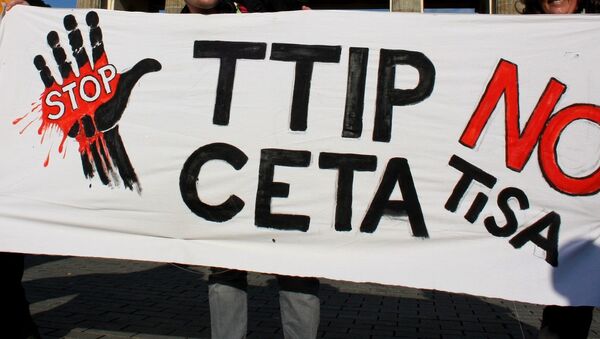"The foreign policy of the country in the last ten years was focused on the development of a privileged partnership with the regional states and partners outside the region, primary on the process of fostering business relationship with China," Olesker said.
He added that the three main strategic partners of the country, namely Brazil, Argentina and China, are not participating in the negotiations.
In his opinion, opening up Uruguay's domestic market to foreign investment would "put into question some very important sectors of the country's economy, like those where the state has a monopoly, or those where there is competition between private and state-owned companies, such as the healthcare system."
"Agreements on trade liberalization in general tend to strengthen the more developed states and hurt those less developed," Olesker stressed.
Critics say TISA attempts to eliminate trade barriers in sectors favorable to Washington but not in areas where liberalization does not serve US interests and paves the way for coordinated, supranational labor laws, medical systems, finance and industrial policy that will undermine local governments' ability to protect its citizens.



